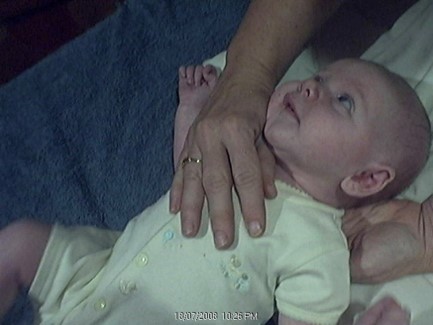Enrolment options
THIS COURSE GOES BEYOND THE FULL PAEDS SERIES.
IF YOU DID THAT COURSE, WHICH INCLUDES SOME BREASTFEEDING AD INFANT FEEDING, BUT WANT MORE INFORMATION, THEN THIS IS THE COURSE.
THIS COURSE IS DESIGNED TO EXTENSIVELY COVER MANY ISSUES IN MUCH GREATER DEPTHS FOR INFANT FEEDING, TONGUE TIE, ORAL FUNCTION, STOMATOGNATHIC SYSTEM AND SO ON, IT HAS MANY MANY HOURSE OF LECTURES, RESEARCH, EVIDENCE DISCUSSIONS, PHYSIOLOGY, NEUROSCIENCE AND CLINICAL INSIGHTS.
This extended and updated course is aimed at osteopaths who have a strong interest in supporting the mother-infant dyad, and families and mums who are struggling with feeding their babies in some way, or with babies who are not establishing feeding.
Osteopaths have many special skills to apply in a clinical context, at this critical time - with babies often just days or weeks old.
Understanding the development of the infant, the transition phase and perinatal dynamics, how primitive reflexes are related to feeding success and how the anatomy of the head, neck, face and body interact with the emergent physiology of suck-swallow-breathe is also essential.
What is also important is to appreciate how birth, tissue irritation, strain, injury to both MUM and BABY can impact on feeding success by causing sensory motor challenges, stress within the arousal and state regulation mechanisms within the infant, and movement and motor challenges within the infant as this then helps osteopaths and similar hands-on practitioners determine a treatment plan or a referral pathway.
Mum also needs particular support, and issues for her involve recovery from birth, bonding and mental health issues, breast-care and milk supply and general restoration of body posture and global cavity restoration.
This course leads into a particular consideration of risks ethics, roles boundaries, consenting and evidence all of which need to be carefully considered when working with this special group of people.
Assessment techniques and approaches for hands on care are discussed. Please note that technical competence cannot be gained from an online programme and so this course cannot credential you for competence on its own.
If you wish to take your training further after completing this course, please contact the College of Non Musculoskeletal Osteopathy (www.cnmo.co.uk) where programmes that lead to a Certificate and can include practical sessions and clinical observation and practice are available in the near future.

- Teacher: Caroline Stone